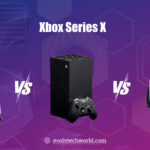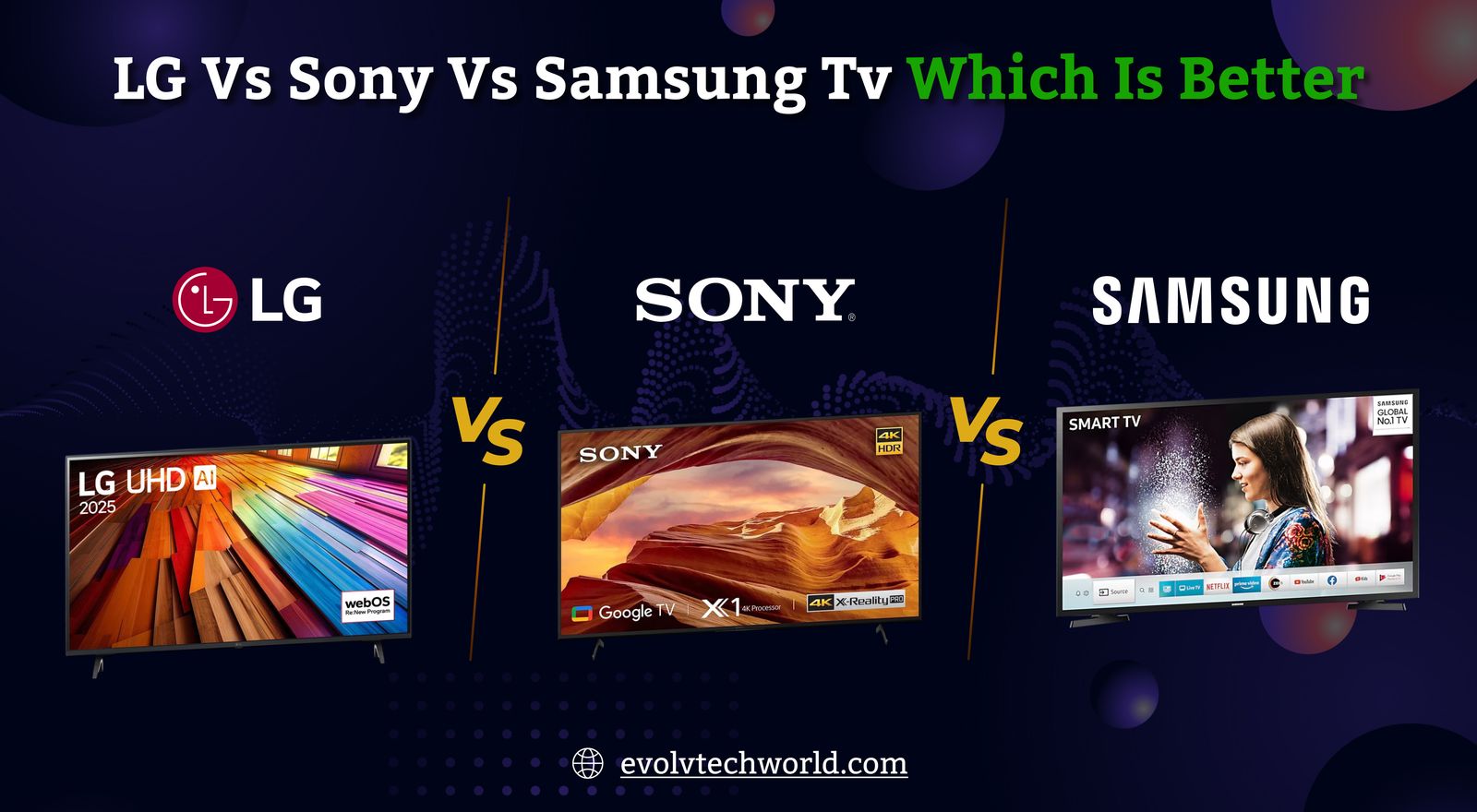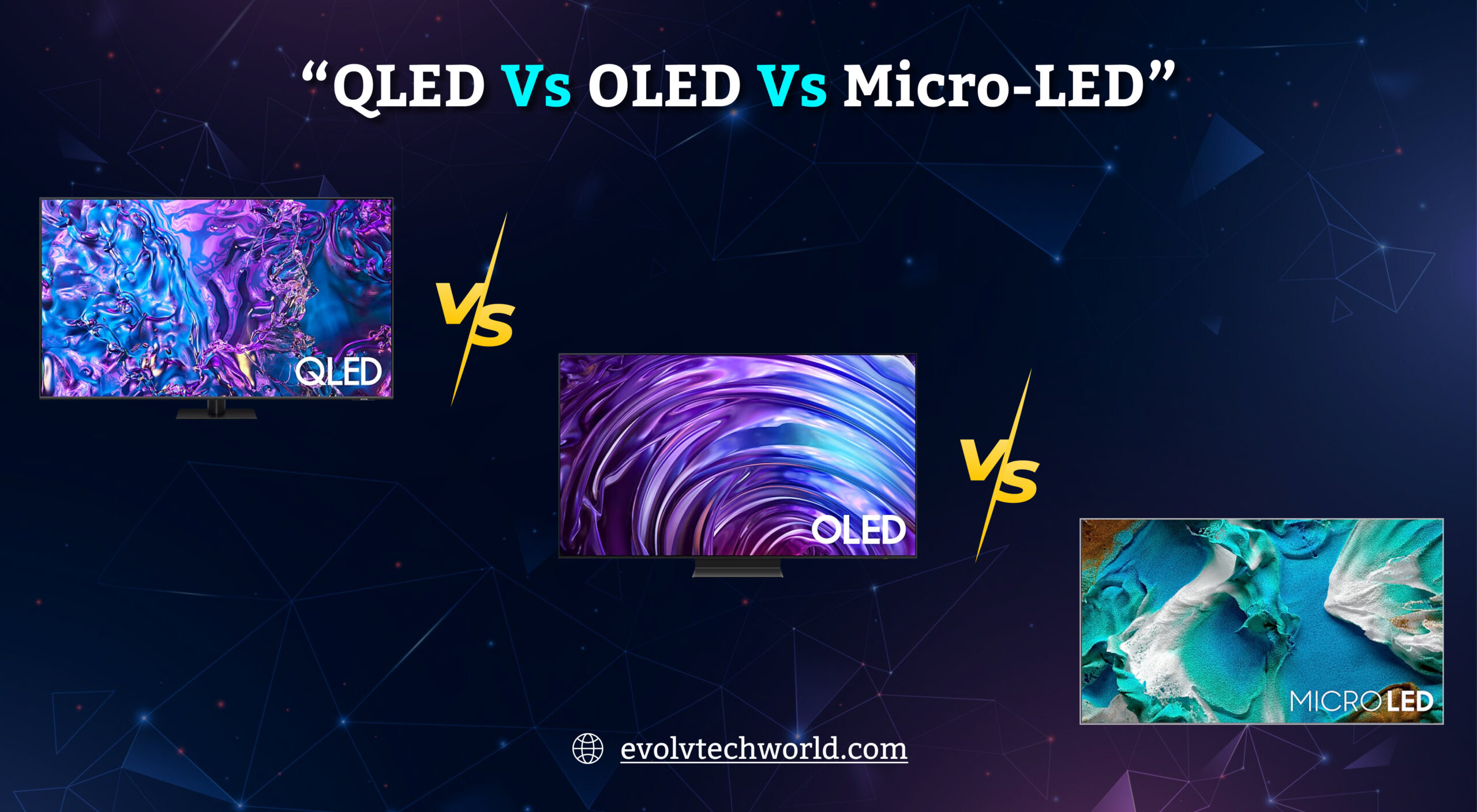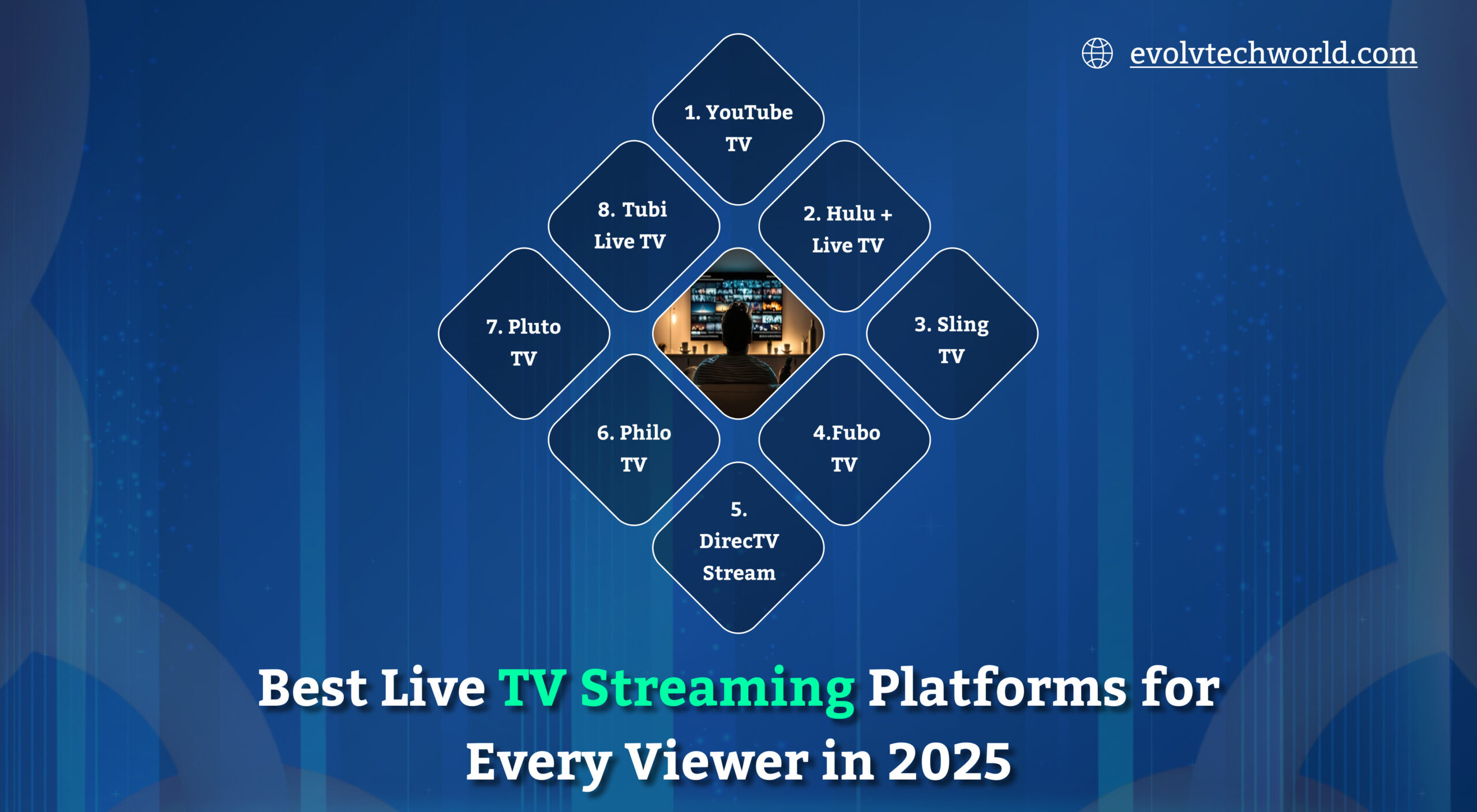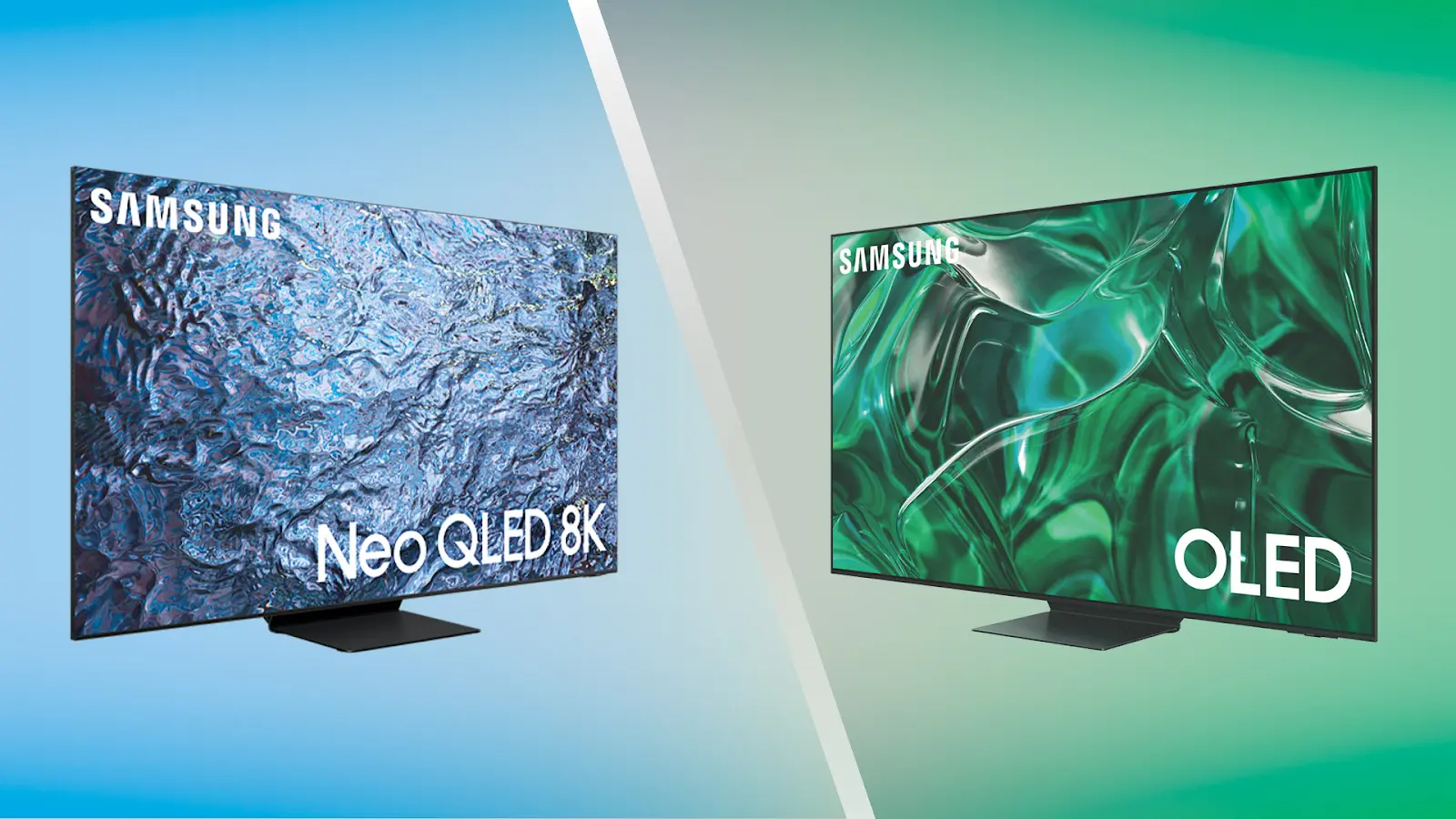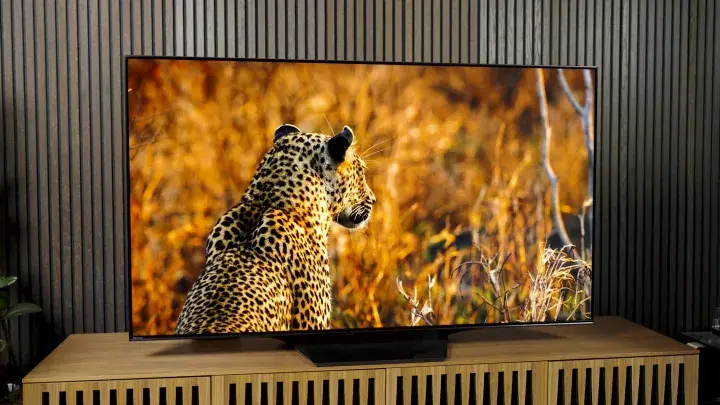When it comes to high-end televisions, three brands lead the global market: LG, Sony and Samsung. All of them have their own design philosophy, picture quality and smart features, which makes them difficult to choose from. This article offers an in-depth comparison of these brands in some categories to enable you to find out which one can be the best choice for your purpose.
Comparison Between LG vs Sony vs Samsung TV
1. Display Technology
LG: OLED Pioneer
LG is the outright leader when it comes to OLED technology. Its OLED TVs (particularly the C and G series) are world-famous for:
- Perfect blacks (since each pixel creates its own light and can individually switch off)
- Infinite contrast ratios
- Wide viewing angles
- Fast response time (ideal for gaming)
LG’s OLED Evo panels (new to recent models) take brightness and color performance even further than previous OLEDs, bridging the gap with LED and QLED in well-lit rooms.
Sony: OLED + Mini LED Excellence
Sony uses OLED panels from LG but upgrades them with its own Cognitive Processor XR, which provides excellent image processing, motion handling and color accuracy. Sony also has Mini LED models such as the Sony X95L, which are suitable for well-lit rooms.
Sony is very good at upscaling lower-res content and maintaining cinematic quality, which makes it a favorite among film buffs.
Samsung: QLED and QD-OLED Pioneer
Samsung doesn’t make conventional OLEDs (though that’s different with their QD-OLED panels in 2022). They instead come first with QLED and Neo QLED tech:
- Brighter panels (for brighter rooms)
- Vibrant colors thanks to quantum dot layers
- Great anti-reflective coatings
Samsung’s QD-OLED TVs (such as the S95C) unite the best of OLED and quantum dot technology with vibrant colors, deep blacks and better brightness — head-on competing with LG’s premium OLEDs.
2. Picture Quality
| Brand | Strengths |
| LG | Best pure blacks, infinite contrast, wide viewing angles |
| Sony | Best image processing and motion handling |
| Samsung | Best brightness and vividness for bright rooms |
- For dark rooms: LG OLEDs are unbeatable.
- For color precision and cinematic realism: Sony has the edge.
- For brightness and punchy HDR: Samsung leads, especially with QLED and QD-OLED.
3. Smart TV Platforms
LG – webOS
- Clean, easy-to-use interface
- Good app support
- Magic Remote with voice control and pointer navigation
- Multi-view and game dashboard features
Sony – Google TV
- Deep Google Assistant integration
- Excellent app ecosystem and personalization
- Chromecast built-in
- Works well with smart home ecosystems (Google, Alexa)
Samsung – Tizen OS
- Polished and fast UI
- Samsung SmartThings integration
- Excellent multitasking and picture-in-picture options
- Supports multiple voice assistants (Bixby, Alexa, Google Assistant)
4. Gaming Features
| Feature | LG (OLED) | Sony | Samsung (Neo QLED / QD-OLED) |
| HDMI 2.1 | Yes | Yes | Yes |
| VRR (Variable Refresh Rate) | Yes | Yes | Yes |
| 120Hz Refresh Rate | Yes | Yes | Yes |
| Game Mode/Optimizer | Game Optimizer | Auto Low Latency Mode | Game Hub, Game Bar |
- LG and Samsung have advanced gaming dashboards for tweaking settings on the fly.
- Sony offers lower input lag than before but lacks some of the customization options.
5. Audio Performance
- Sony uses Acoustic Surface Audio+ (in OLEDs), turning the screen into a speaker — offering immersive sound without external speakers.
- LG TVs support Dolby Atmos and have decent sound, though they benefit greatly from a soundbar.
- Samsung features Object Tracking Sound (OTS) for a spatial audio effect and Q-Symphony when paired with Samsung soundbars.
6. Design and Build Quality
- Sony TVs are generally more premium in design and build, particularly with their minimal bezels and elegant stands.
- LG OLEDs are ultra-thin and sleek, often blending beautifully with modern interiors.
- Samsung TVs are stylish with slim profiles and innovative mounting options (like The Frame TV).
7. Pricing and Value
- LG OLEDs are competitively priced and frequently discounted.
- Sony TVs are usually the most expensive, due to advanced processing and premium components.
- Samsung offers a wide range of models from budget to premium, with good value at each tier.
Final Verdict: Which One Should You Buy?
Buy LG if:
- You want the best OLED experience at a competitive price.
- You’re a gamer looking for fast response time and visual clarity.
- You prefer sleek design and an intuitive OS.
Buy Sony if:
- You’re a film buff seeking the most accurate picture and natural motion.
- You value premium sound and high-end design.
- You’re deep into the Google ecosystem.
Buy Samsung if:
- You want bright, vibrant images for well-lit rooms.
- You’re a gamer or smart home user looking for extra features and smart integration.
- You’re interested in QD-OLED for cutting-edge performance.
Conclusion
No single brand is necessarily “better” each does something better than others. LG leads in OLED and value, Sony in cinematic quality and processing and Samsung in brightness and smart features. Your best choice depends on your use: movie watching, gaming or regular TV in a variety of lighting conditions.






